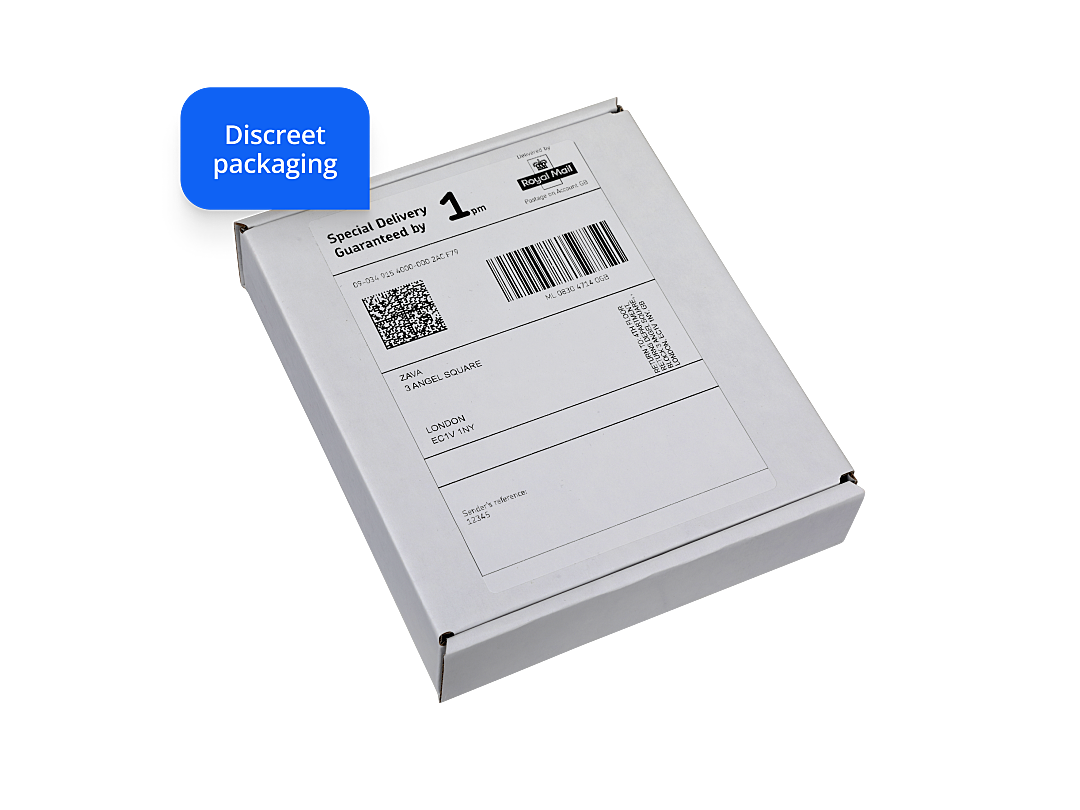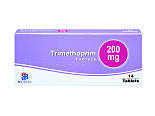-
Trimethoprim is an antibiotic medicine used to treat cystitis (infection of the bladder).
Due to concerns about antibiotic resistance, where medicines no longer work against certain bacteria, Trimethoprim is not usually recommended as the first choice of treatment for cystitis. A medicine called MacroBID (Nitrofurantoin) is recommended to try first instead. However, your doctor may still recommend you take Trimethoprim to treat cystitis if MacroBID is not suitable for you.
Trimethoprim is a generic medicine (non branded), and the active ingredient is Trimethoprim.
Prices
6 tablet(s) - £18.00



About Trimethoprim
-
-
Trimethoprim is an antibiotic - a type of medicine that kills bacteria. It’s a broad spectrum antibiotic, which means that it can kill a range of different bacteria.
Trimethoprim is used to treat cystitis. While cystitis means inflammation of the bladder and can be caused by many different things, the term is usually used as another way to describe a urinary tract infection that affects the bladder. Cystitis is caused by bacteria, and typically, it causes symptoms including:
- a stinging or burning feeling when you pee
- feeling like you need to pee more often and more urgently
- your pee to be darker, cloudier and have a stronger smell than usual
- pain in your lower tummy
If you have symptoms of cystitis and they do not improve, you may need treatment with an antibiotic to clear the infection.
Trimethoprim used to be the preferred treatment for cystitis. However, in recent years there has been an increase in antibiotic resistance to Trimethoprim. To treat cystitis, MacroBID (nitrofurantoin) is usually recommended. However if you are unable to take MacroBID or it does not work for you, Trimethoprim may be a suitable alternative. Your doctor will discuss with you if Trimethoprim is suitable for you.
Trimethoprim is sometimes used to prevent cystitis from recurring (coming back). Trimethoprim is also sometimes used to treat other conditions, including acne and chest infections.
Trimethoprim is made by Accord Healthcare Limited.
-
-
Trimethoprim is a tablet that you take by mouth. You may find it easiest to take Trimethoprim with a glass of water.
To treat cystitis, one Trimethoprim tablet is normally taken twice a day for 3 days.
Your doctor may recommend that you take Trimethoprim for longer than 3 days. You should take Trimethoprim for as long as you have been recommended to. Your doctor may recommend that for your first dose, you take 2 tablets of Trimethoprim.
If you forget a dose, do not take a double dose to make up for it. Continue taking your next dose as normal.
Trimethoprim is sometimes taken to prevent cystitis. The usual dose of Trimethoprim to prevent cystitis is 100mg once a day, at night.
You should speak to your doctor before taking Trimethoprim if you:
- have kidney disease
- are having dialysis
- have a folic acid deficiency
- are breastfeeding
You should not take Trimethoprim if you have:
- an allergy to Trimethoprim or any of the other ingredients
- a blood disorder
- severe liver disease
You should not take Trimethoprim if you are pregnant.
-
-
Trimethoprim works by killing bacteria, and it does this by stopping them from producing a substance called folic acid. Bacteria use folic acid to make some amino acids that they need to make proteins. Without folic acid, the bacteria cannot survive.
Trimethoprim kills the bacteria that cause cystitis. If you take Trimethoprim to treat cystitis, your symptoms should get better straight away and clear up completely after a few days. If they do not, you need to see a doctor for advice on what to do next.
-
-
Trimethoprim may cause side effects. These are usually mild, and not everyone will have side effects when taking Trimethoprim.
Common side effects of Trimethoprim:
- nausea (feeling sick) and vomiting (being sick)
- diarrhoea
- skin rashes and urticaria (hives)
- anaemia leading to tiredness and looking pale
- a decrease in white blood cells leading to a sore throat or mouth ulcers
- thrush
If you are worried about any side effects whilst taking Trimethoprim, you can speak to your doctor or pharmacist. You can also report any side effects through the MHRA (Medicines & Healthcare products Regulatory Agency) Yellow Card scheme.
A very common side effect of Trimethoprim is a high level of potassium in the blood. This can cause an abnormal heart rhythm. You may be at greater risk of developing a high level of potassium in the blood if you have kidney problems, diabetes that is not well controlled, or are taking potassium supplements or certain medications. You should speak to your doctor if this applies to you.
If you develop any of the following symptoms, you should stop taking Trimethoprim straight away. Speak to your doctor or go to your nearest A&E (Accident and Emergency) department if you have:
- signs of an allergic reaction (includes difficulty breathing, swelling in your face, lips, tongue or throat
- chest pain, shock, fainting or if you collapse
- blistering or peeling of the skin, lesions or eruptions in the skin, swelling of the skin (angioedema)
- a sudden, severe upper abdominal pain (this can be a sign of pancreatitis)
-
-
Before starting Trimethoprim, you should let your doctor know about any other medicines you are taking. When taken together, the effectiveness of Trimethoprim and certain other medicines can change.
Trimethoprim may interact with:
- antibiotics including rifampicin
- warfarin and heparin (to prevent and treat blood clots) and other anticoagulants (blood thinners)
- some medicines taken after a transplant to prevent or treat rejection (including ciclosporin and azathioprine)
- digoxin, taken to treat some heart conditions
- phenytoin (for epilepsy)
- some medicines for malaria including pyrimethamine and dapsone
- some medicines used to suppress the immune system in cancer treatment (for example methotrexate)
- bone marrow depressants
- potassium supplements
- some medicines used to treat high blood pressure and heart conditions (including digoxin, ACE inhibitors and angiotensin II antagonists)
- procainamide for abnormal heart rhythm
- repaglinide (for diabetes)
- diuretics including eplerenone, spironolactone, amiloride and triamterene
-
-
The medicine usually recommended to treat cystitis is MacroBID (Nitrofurantoin). MacroBID works differently to Trimethoprim and is available to request from ZAVA.
-
-
Trimethoprim is usually effective at treating cystitis. However, some bacteria have developed resistance to Trimethoprim. Where resistance to Trimethoprim has developed, an alternative treatment should be used instead. MacroBID (Nitrofurantoin) is usually recommended as the first line treatment for cystitis, and if it’s not suitable for you, trimethoprim would be an alternative.

Dr Babak Ashrafi Clinical Lead for Service Expansion
Accreditations: BSc, MBBS, MRCGP (2008)
Babak studied medicine at King’s College London and graduated in 2003, having also gained a bachelor’s degree in Physiology during his time there. He completed his general practice (GP) training in East London, where he worked for a number of years as a partner at a large inner-city GP practice. He completed the Royal College of GPs membership exam in 2007.
Meet our doctorsLast reviewed: 05 May 2022
-
Trimethoprim 200mg, Patient Information Leaflet, EMC [accessed February 2023]
-
Trimethoprim, National Health Service [accessed February 2023]
-
Trimethoprim, NICE/British National Formulary [accessed February 2023]
-
Urinary tract infections (UTIs), National Health Service [accessed February 2023]
-
Urinary Tract Infection Treatment, Stanford Health Care [accessed February 2023]
Cystitis bladder infections are caused by bacteria and need to be treated with antibiotics. ZAVA offers a variety of treatment through a convenient, discreet service.












